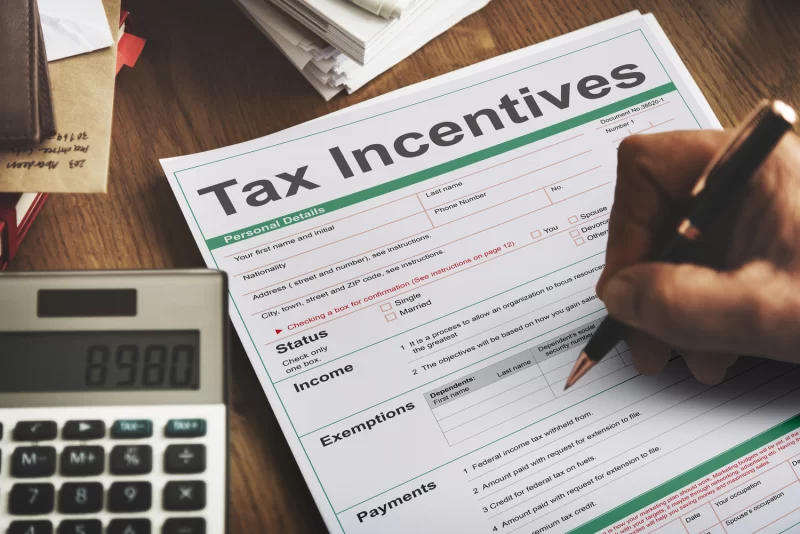
Tax time is coming up and we want to make sure you are all prepared. While we always advise that you speak with a tax consultant before making decisions, we are here for you if you are in need of financial advice as well. You can always reach our financial advisors via email or phone call for a free consultation.
The most significant change to the American tax system in the last 30 years has been the ‘Tax Cuts and Jobs Act’ (TCJA). A majority of these changes will come into effect for the 2018 tax year, which is the return that you would file with the IRS in the spring of 2019.
Most of the new tax rules are likely to benefit the taxpayers. Just how much your taxes will go down in 2019 will depend on a few different factors. If married, your family situation will impact how much your refund is likely to go up.
Although the number of tax brackets has remained at seven, the rates have been lowered overall, except for the minimum tax rate which has been maintained at 10%.
In addition to lowering tax rates, the income thresholds have also been increased, especially at the higher tax brackets.
The IRS has also announced the restructured inflation-adjusted 2019 tax brackets, which will be used on the tax return that will be filed in 2020 for income that you would earn during the 2019 calendar year.
A list of the recent tax changes and how they will impact individual taxpayers with dependents is given below:
Child Tax Credit
The child tax credit has been doubled from $ 1000 to $ 2000 per qualifying child under the age of 17 and the income limitations have also been made less restrictive. Earlier the child tax credit was non-refundable, but now the refundable portion is equal to 15% of one’s earned income over $2,500, up to a maximum of $1,400. This implies that even if the parent has little income or owes no federal income tax, they could still take advantage and get this money back. The Child Tax Credit has significantly expanded the range of people who can benefit from it.
To understand how much refund you would receive, you can use the following equation:
(Your salary – $2,500) x .15
However, your child must fulfil all the requirements on the Child Tax Credit Test to qualify for the new credit.
A $500 Credit for Dependents Aged 17-24
If your child fails to qualify for the Child Tax Credit because they are above 17, they might still be eligible for a $500 credit under the new tax regime. This credit also applies for dependents who are either elderly or disabled.
Personal exemption and Standard Deduction
The TCJA has eliminated personal exemption but has increased the standard deduction to $24,000 ($12,000 if you are a single income tax filer). This is good news for families with fewer children, but if you have several children or your dependents are over 17, this could mean that more of your income will be taxable. In the 2017 tax year, each personal exemption gave $4,100 tax deduction. Prior to the tax reforms, there was no limit to the number of personal exemptions that one could claim.
Restrictions to Homeowner Deductions
Homeowners will especially feel the effects of the new rules. It is the biggest tax deduction that Americans have taken advantage of over the recent years; the deduction for state and local taxes-also known as the SALT (State and Local Taxes) deduction. However, the SALT deduction is now limited to a maximum of $10,000, starting with the 2018 tax year.
Mortgage interest still continues to be the most popular U.S. tax breaks. Fortunately, for many homeowners, the mortgage interest deduction survived the tax reforms, but with two major modifications.
Firstly, the cap on the total deduction has been reduced on the interest of up to $750,000 of qualified residence debt, or mortgage principal on a primary or secondary home.
Secondly, the additional limit that earlier allowed taxpayers to deduct interest on up to $100,000 of home equity debt has been eliminated.
Also, the moving expenses related to moving – trucks, boxes, temporary lodging, travel, etc. were tax deductible prior to the tax reforms. But beginning 2018, these expenses can no longer be deducted from the income, even if you move for your job. However, there is one exception: military service members on active duty and moving on orders will be able to deduct moving expenses even after the tax law changes take effect.
Changes to Alimony deductions
If your divorce was finalized prior to Dec. 31, 2018, then this law will not change anything for you. This means that when you file your taxes for 2018, you will still be able to deduct the alimony that you have paid. On a similar note, if you are receiving the alimony, you will have to include that alimony payment in your taxable income for 2018.
However, the alimony payments cannot be deducted from the payer’s taxable income for 2019 if your divorce is finalized after Jan. 1, 2019, or you modify your alimony agreement on or after this date.
Expanding The Use of 529 Savings Plan
For most parents, saving money is a priority in order to send their kids to college, but nowadays, even sending your children to kindergarten has become fairly expensive. If you were saving money for higher education, you probably chose the best plan that gave the maximum tax benefits. If you chose the 529 savings account, then there are some additional advantages under the TCJA. Under the old tax laws, the 529 savings account could only be used at selected colleges and universities. Under the new tax reforms, you can use this plan to cover up to $10,000 of qualifying expenses per year for any school and any grade from kindergarten till 12th. These also include public, private, and religious institutions.
However, a change was made to 529 savings plans to allow the use of funds for qualifying educational expenses at any level, not just for college.
Changes to The Kiddie Tax
The kiddie tax applies to children who are under the age of 19 and college students under the age of 24 who have unearned income over $2,100. This unearned income could be from dividends, capital gains or interest on investments.
It is always best to work with a tax consultant that can guide you in the right direction when it comes to doing your taxes. Our financial advisors can also assist you before you decide to make any financial decisions. You can email us or call us today for a free consultation.
Contact Us
[wpforms id=”245″]




